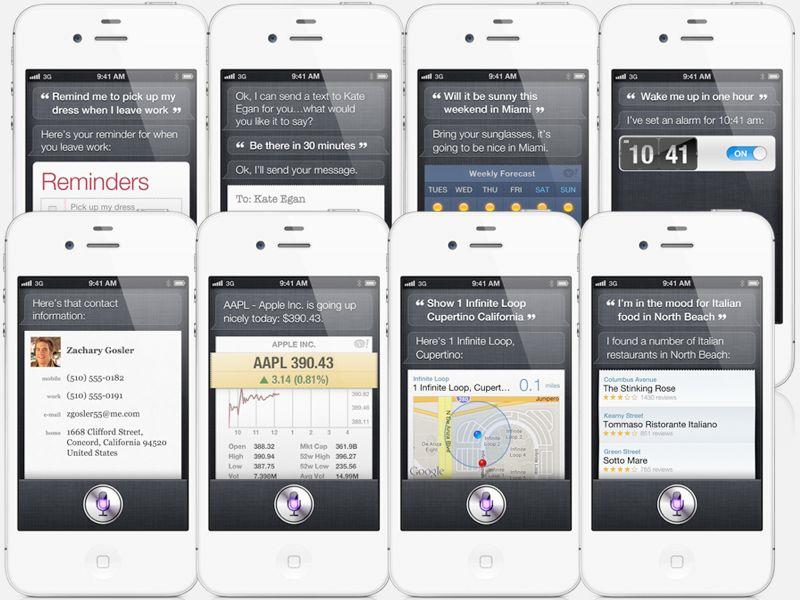Tests find Apple's Siri uses average of 63KB in data per query
For those with a capped data plan who must keep an eye on their iPhone usage, the testing done by Jacqui Cheng of ArsTechnica may come as a relief, as it shows using Siri will not consume a great deal of bandwidth for most users. For example, someone who uses Siri 10 to 15 times per day would use a total of 18.5MB to 27.7MB in one month.
The average of 63KB was found by doing 11 different tasks: six of them considered local, and another five that required data to be accessed online. Local tasks used just 36.7KB per query, while ones that relied on a Web search or Wolfram Alpha averaged 94.72KB.
In all, a total of 11 queries added up to 393.6KB of data usage. Another four text dictations were also accomplished, with two short e-mails and two text messages averaging 72.5KB. The testing confirmed that longer messages require more remote processing from Apple's servers and use more bandwidth.
"Your own numbers will be different depending on how wordy you are, what kinds of queries you're making, and how frequently you do it," Cheng said. "So please take these estimates with a grain of salt — they're more like general ranges than exact numbers."
The complex software required by Siri to decipher users' natural language cannot be accomplished on the iPhone 4S alone, which is why the service uses Apple's servers to help understand commands and questions. Answers can be provided from a number of places including Google, Bing, Wolfram Alpha, Wikipedia, Yelp and more.
New iPhone customers in the U.S. started facing data caps in June of 2010 when AT&T, then the exclusive carrier of the iPhone, began restricting new signups to 2GB of bandwidth per month before additional fees were incurred. AT&T's chief competitor, Verizon, also instituted its own cap this July with a high-end plan offering 10GB of data for $80 per month. Sprint began offering the iPhone in October, and has differentiated itself by offering customers an unlimited plan for data, unlike new AT&T and Verizon subscribers.
Apple's Siri software, exclusive to the iPhone 4S, remains in beta at launch, and currently understands English from the U.S., U.K. and Australia, as well as French and German. Apple has promised that Siri will gain support for additional languages in 2012 including Japanese, Chinese, Korean, Italian and Spanish.
 Sam Oliver
Sam Oliver














 Amber Neely
Amber Neely
 Thomas Sibilly
Thomas Sibilly
 AppleInsider Staff
AppleInsider Staff
 William Gallagher
William Gallagher
 Malcolm Owen
Malcolm Owen
 Christine McKee
Christine McKee










34 Comments
Cue the "evil Apple is tracking and monitoring all your voice commands" in 3, 2, 1....
Cue the "evil Google is tracking and monitoring all of your search queries and Gmail messages so it can sell the ads which generate about 97% of its revenue" in 4, 3, 2....
I was actually concerned about this. I wanted to to move to the 2GB since my AT&T unlimited data plan is not unlimited anymore. Beside, you can not get tethering plan with unlimited.
Cue the "evil Apple is tracking and monitoring all your voice commands" in 3, 2, 1....
Cue the "evil Google is tracking and monitoring all of your search queries and Gmail messages so it can sell the ads which generate about 97% of its revenue" in 4, 3, 2....
There's nothing contradictory about the first being false while the second is obviously true. Kind of a lame post, really. Try to do better if you're going to troll here. We demand that our trolls be insanely great, not simply insane. (Unfortunately, our demands have not yet been met.)
My thinking is that Apple is using its huge datacenter to collect data and refine Siri for various speech and accents, keeping tally of common requests, etc. That way they could push out more common things to the phone itself. That'd cut back usage.